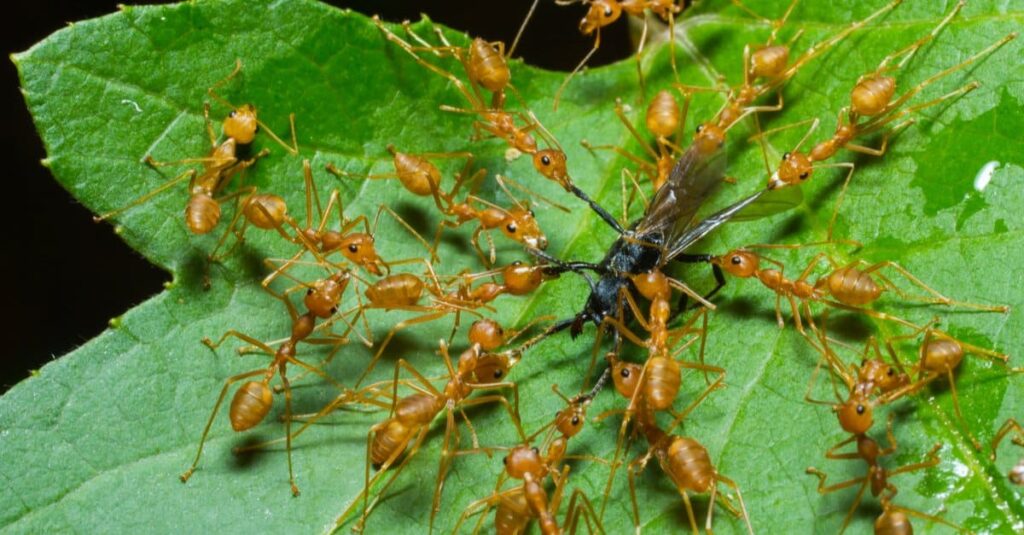
Sugary Substances
- Ants love sugar! They are attracted to things like nectar, honeydew (a sugary liquid produced by aphids), fruit juices, and sweet human foods like syrup or candy.
Proteins
- Ants need protein for growth and colony development. They often eat dead insects, small animals, or human-provided protein sources like meat, eggs, or pet food.
Fats and Oils
- Some ant species are drawn to greasy or fatty foods, such as butter, oil, or even chips. This helps provide energy and is especially important for some ant colonies.
Fungi
- Leafcutter ants are a unique example—they farm fungi by cutting and collecting leaves to grow a special fungus, which they then eat.
Seeds and Grains
- Certain ants, like harvester ants, collect and store seeds and grains. These are ground into a kind of ant “bread” or stored for later use.

Sure! Here’s a deeper look into more types of food ants eat, expanding beyond the original five:
- Honeydew from Aphids and Other Insects
- Some ants “farm” aphids and other sap-sucking insects like scale insects. They protect these bugs from predators and in return collect the honeydew they secrete. It’s a rich source of sugar and water.
- Carrion (Dead Animals)
- Many ants are scavengers and will feed on dead animals. This includes small vertebrates and invertebrates. They help clean up ecosystems by breaking down decaying matter.
- Mushrooms and Wild Fungi
- While some ants grow their own fungus (like leafcutters), others forage for naturally occurring fungi in the environment.
- Tree Sap and Resin
- Ants may drink sap that oozes from tree bark or fruit. Some even collect resin for its antimicrobial properties and use it in their nests.
- Human Food Scraps
- In urban areas, ants often raid kitchens and picnic sites for a wide range of leftover human food, including bread, cookies, soda, and cooked vegetables.
Ant diets can be surprisingly complex, with some species being highly specialized (like fungus-growing ants) and others being generalists that eat almost anything. If you’re curious about the diet of a particular ant species (like fire ants, carpenter ants, or Argentine ants), I can give you a more tailored answer!